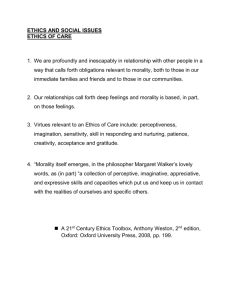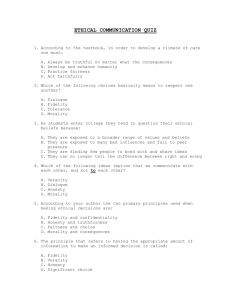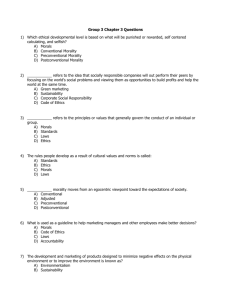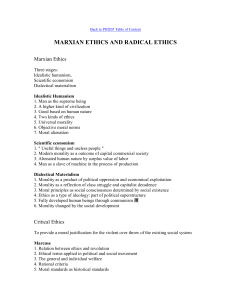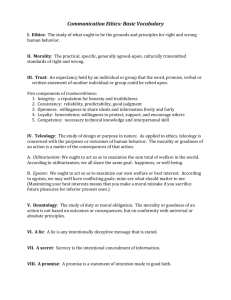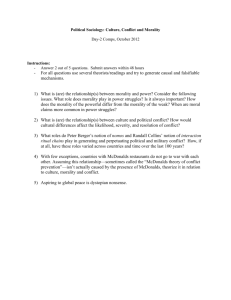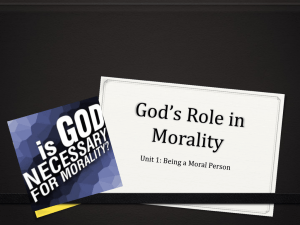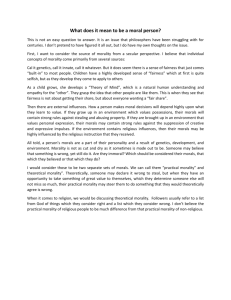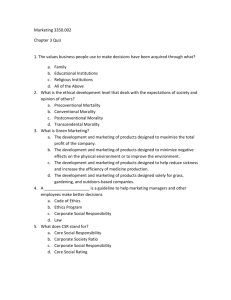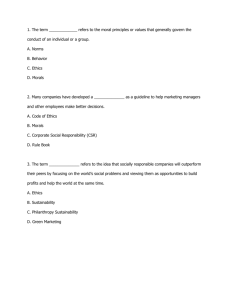Professional Ethics
advertisement
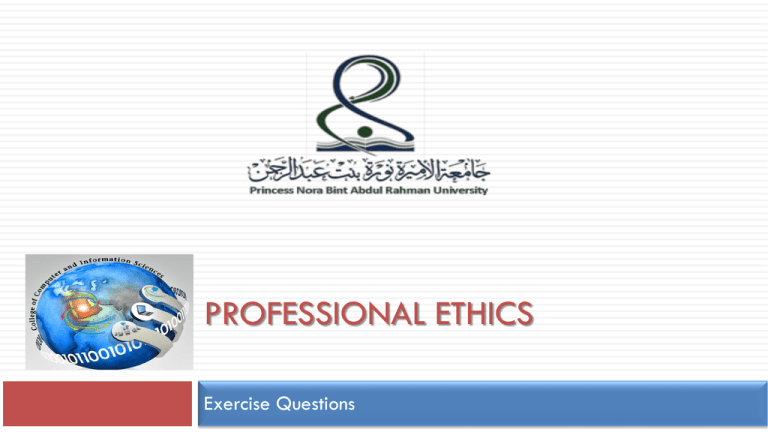
PROFESSIONAL ETHICS Exercise Questions Exercises 2. Define morality and ethics in your own words. Morality refers to guidelines that you can use to determine what you ought to do in a particular situation. Morality also allows you to figure out whether a particular decision or action is right or wrong. Ethics is the philosophical study of morality. Exercises 3. What is the difference between morality and ethics? Morality is focused on solving particular problems. Ethics is broader than morality in that it includes the higher-level activities evaluating moral systems and the creation of new ways of evaluating moral problems. Exercises 2. What is the difference between relativism and objectivism? Relativism is the view that “the good” exists inside the human mind. Our role as humans is to invent “the good” Since “the good” is invented, its definition is malleable. Objectivism is the view that “the good” exists outside the human mind. Our role as humans is to find or discover “the good” Since “the good” exists independently of our intellectual activity, its definition never changes. Exercises 6. Two people are debating the morality of a particular action. Person A explains whay he believes the action is wrong. Person B disagrees whith person A. Her response to him is, “that’s your opinion” Person B has not made a strong ethical argument. Why not? Person B has not made a strong ethical argument because she has not brought up any facts or values that would undermine or contradict the explanation of Person A. Exercises 7. What do we mean when we say an ethical theory is rational When we say an ethical theory is rational, we mean that it relies upon logical reasoning from facts or commonly held values.

